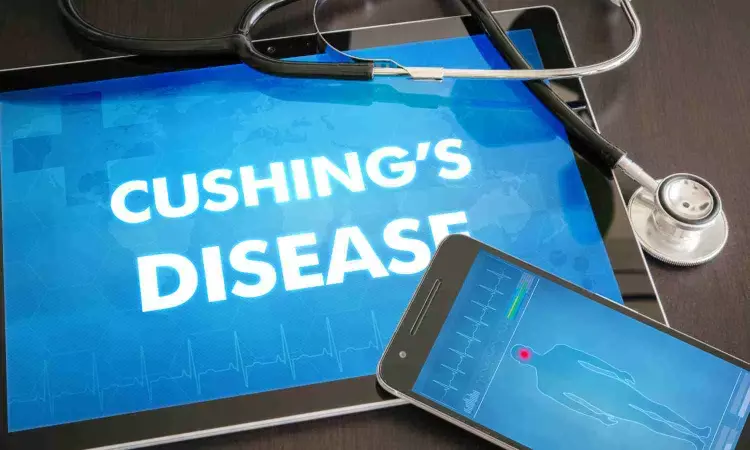- Home
- Medical news & Guidelines
- Anesthesiology
- Cardiology and CTVS
- Critical Care
- Dentistry
- Dermatology
- Diabetes and Endocrinology
- ENT
- Gastroenterology
- Medicine
- Nephrology
- Neurology
- Obstretics-Gynaecology
- Oncology
- Ophthalmology
- Orthopaedics
- Pediatrics-Neonatology
- Psychiatry
- Pulmonology
- Radiology
- Surgery
- Urology
- Laboratory Medicine
- Diet
- Nursing
- Paramedical
- Physiotherapy
- Health news
- Fact Check
- Bone Health Fact Check
- Brain Health Fact Check
- Cancer Related Fact Check
- Child Care Fact Check
- Dental and oral health fact check
- Diabetes and metabolic health fact check
- Diet and Nutrition Fact Check
- Eye and ENT Care Fact Check
- Fitness fact check
- Gut health fact check
- Heart health fact check
- Kidney health fact check
- Medical education fact check
- Men's health fact check
- Respiratory fact check
- Skin and hair care fact check
- Vaccine and Immunization fact check
- Women's health fact check
- AYUSH
- State News
- Andaman and Nicobar Islands
- Andhra Pradesh
- Arunachal Pradesh
- Assam
- Bihar
- Chandigarh
- Chattisgarh
- Dadra and Nagar Haveli
- Daman and Diu
- Delhi
- Goa
- Gujarat
- Haryana
- Himachal Pradesh
- Jammu & Kashmir
- Jharkhand
- Karnataka
- Kerala
- Ladakh
- Lakshadweep
- Madhya Pradesh
- Maharashtra
- Manipur
- Meghalaya
- Mizoram
- Nagaland
- Odisha
- Puducherry
- Punjab
- Rajasthan
- Sikkim
- Tamil Nadu
- Telangana
- Tripura
- Uttar Pradesh
- Uttrakhand
- West Bengal
- Medical Education
- Industry
Surgical remission of Cushing's disease tied to higher risk of developing autoimmune disease

Researchers have found in a new study that Surgical emission of Cushing's disease tied to higher risk of developing autoimmune disease.
ln a study of more than 250 persons undergoing surgical therapy for Cushing’s disease (CD) or nonfunctioning pituitary adenomas (NFPAs), the researchers found that patients who achieved remission of CD were more likely than those with surgically treated NFPAs to develop new-onset autoimmune disease within 3 years after remission.
The study is published in Annals of Internal Medicine.
CD results from excessive production of corticotropin (ACTH) by a pituitary adenoma, which causes hypercortisolemia. Transsphenoidal surgery (TSS) is the first-line treatment for most hypersecreting pituitary adenomas. After TSS for CD, adrenal insufficiency occurs once the ACTH-secreting tumor is removed, the signs and symptoms of hypercortisolemia typically improve over time but steroid withdrawal symptoms may develop after remission of CD. In addition, the development of new autoimmune disease in patients after CD remission has been observed, but research is limited.
Researchers from Harvard Medical School identified 194 persons with CD and 92 persons with NFPA, frequency-matched for age and sex, who underwent pituitary surgery. The authors found that persons with CD who achieved remission were more likely than those with surgically treated NFPAs to develop new-onset autoimmune disease within 3 years after remission.
The cumulative incidence was 10.4 percent. According to the authors, higher prevalence of adrenal insufficiency and the lower nadir serum cortisol levels in the CD group suggest that the postoperative adrenal insufficiency might have contributed to the development of autoimmune diseases. They also note that patients with CD who have a family history of autoimmune disease should be carefully monitored after achieving remission. In addition, the authors add that higher doses of early postoperative glucocorticoid replacement might be associated with decreased risk for development of autoimmune disease. These findings have implications for the understanding of the natural history of autoimmune disease and its relationship to cortisol fluctuations.
Reference:
Dennis Delasi Nyanyo, , Masaaki Mikamoto, Francesca Galbiati, Autoimmune Disorders Associated With Surgical Remission of Cushing’s Disease, Annals of Internal Medicine, https://doi.org/10.7326/M23-2024.
Dr Kamal Kant Kohli-MBBS, DTCD- a chest specialist with more than 30 years of practice and a flair for writing clinical articles, Dr Kamal Kant Kohli joined Medical Dialogues as a Chief Editor of Medical News. Besides writing articles, as an editor, he proofreads and verifies all the medical content published on Medical Dialogues including those coming from journals, studies,medical conferences,guidelines etc. Email: drkohli@medicaldialogues.in. Contact no. 011-43720751


